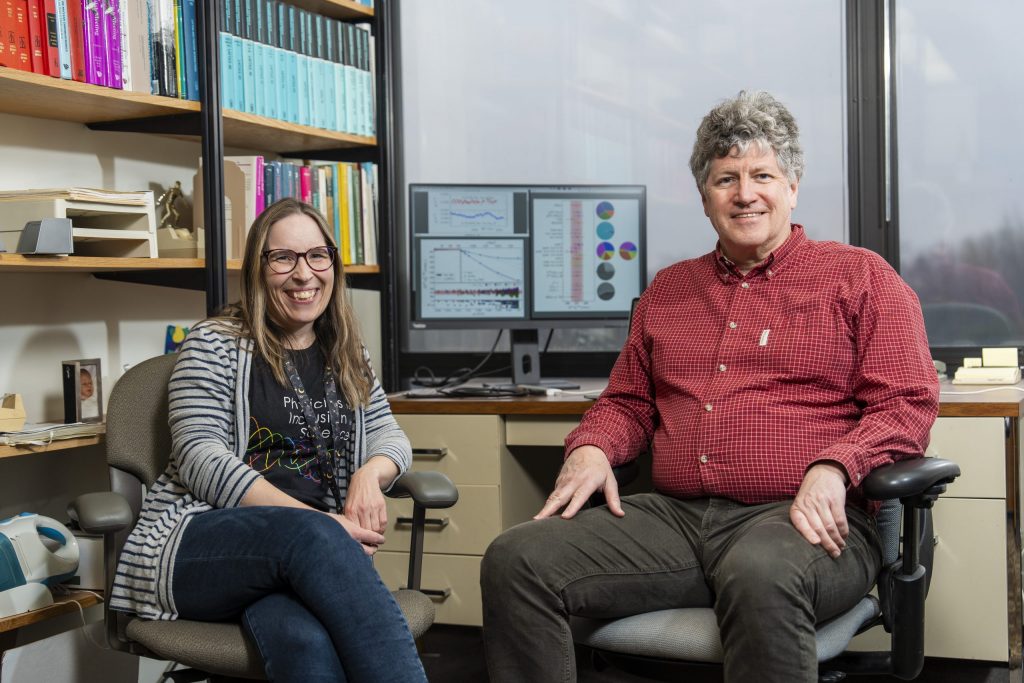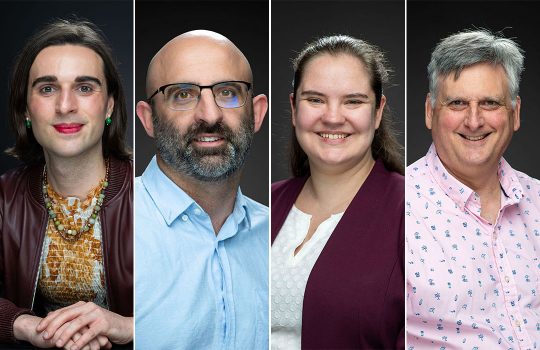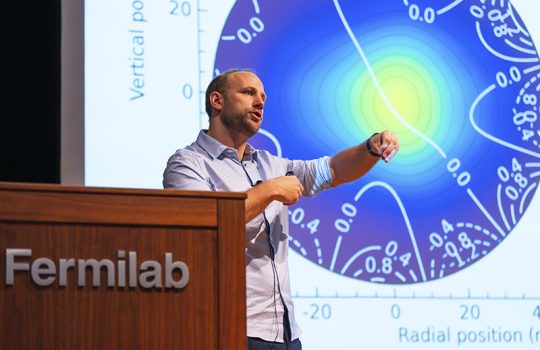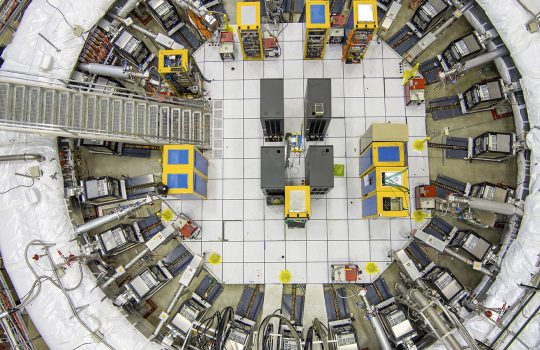When tackling a complex project, the tools and equipment researchers use can greatly impact the results. That is the basis of the Department of Energy’s Office of Science Innovative and Novel Computational Impact on Theory and Experiment program, known as INCITE. This year the program awarded 81 computational science projects access to leadership-class supercomputers at DOE’s Argonne and Oak Ridge National Laboratories to accelerate discovery and innovation.
One of the largest recipients of an INCITE award this year is a project led by Andreas Kronfeld at Fermi National Accelerator Laboratory. The project, called Advances in Quark and Lepton Flavor Physics with Lattice QCD, was the largest particle physics project among the recipients this year. The award will allow the project’s researchers, who are working at several national labs and U.S. universities, to use the Aurora and Frontier supercomputers to continue the study of the behavior and interactions of subatomic particles against the Standard Model of Particle Physics.
“We are honored to have received the renewal of INCITE and the largest award in particle physics,” said Andreas Kronfeld, Fermilab researcher and the project’s principal investigator. “This will allow us to continue conducting large-scale numerical calculations on world-class supercomputers that will impact experiments at Fermilab, CERN, KEK and other accelerator laboratories.”

The Advances in Quark and Lepton Flavor Physics with Lattice QCD project uses numerical simulations based on the lattice gauge theory formulation of quantum to address fundamental questions in elementary particle physics: the hadronic vacuum polarization contribution to the anomalous magnetic moment of the muon, also known as muon g-2, semileptonic decays of the heavy bottom and charm quarks, and CP violation. Precise calculations from supercomputers are needed to compare theoretical calculations with experimental measurements.
“It is especially exciting that this year we will be able to finish a calculation of the muon g-2 after several years of key support from INCITE,” said Ruth Van de Water, project member and Fermilab scientist. “Recent developments, including results from the Fermilab Muon g-2 experiment make this topic incredibly timely!”
Being awarded time to use supercomputers is valuable to complex projects because their enormous capability enables researchers to tackle complex systems with more precision and efficiency than with general-purpose computers.
The INCITE program is the primary means by which the facilities fulfill their mission to advance open science by providing the scientific community with access to their powerful supercomputing resources. It is jointly managed by the Argonne Leadership Computing Facility and the Oak Ridge Leadership Computing Facility.
Fermi National Accelerator Laboratory is supported by the Office of Science of the U.S. Department of Energy. The Office of Science is the single largest supporter of basic research in the physical sciences in the United States and is working to address some of the most pressing challenges of our time. For more information, please visit science.energy.gov.



